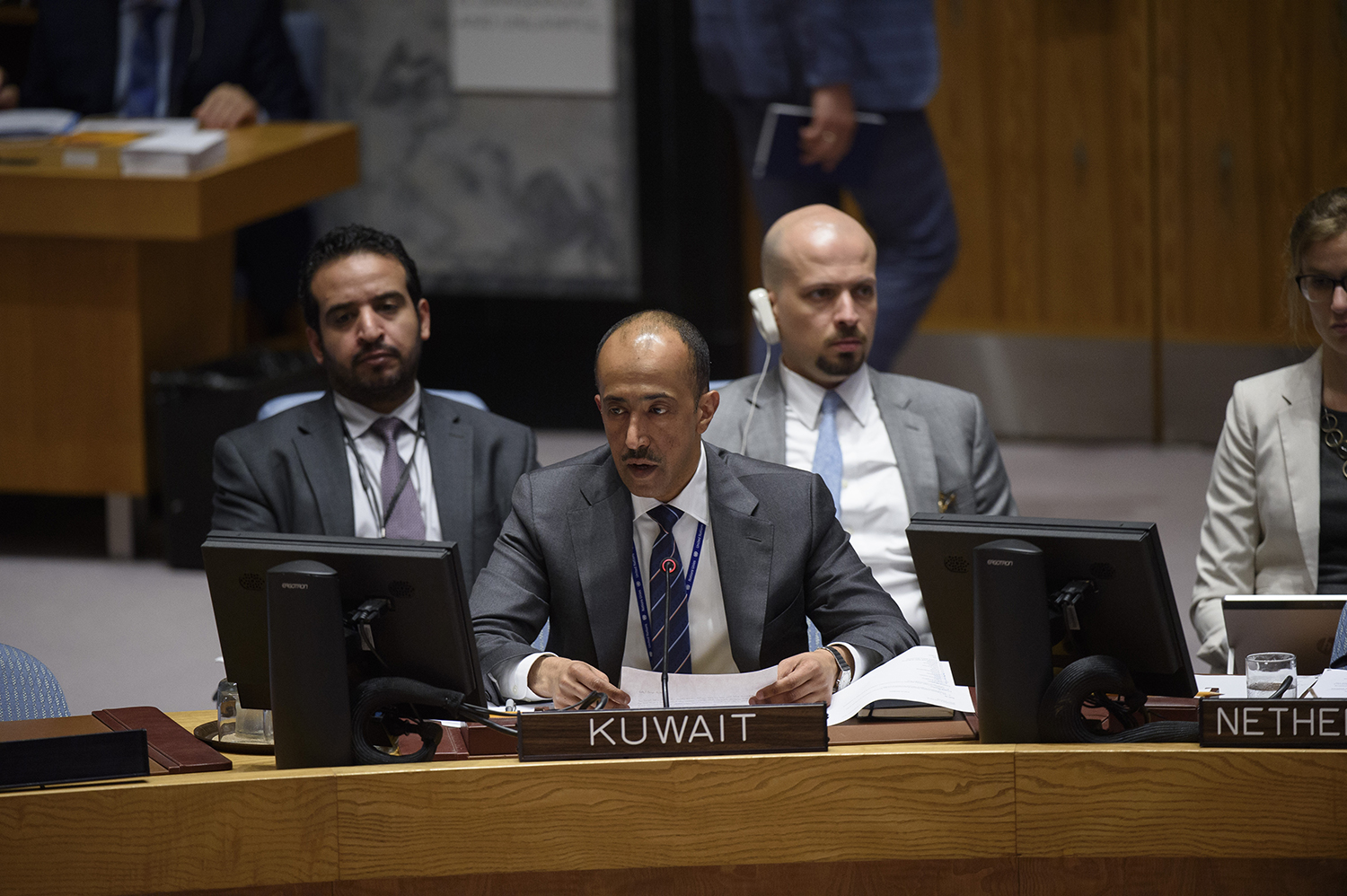LOC11:55
08:55 GMT
 Deputy permanent representative of the Kuwaiti mission at the United Nations' headquarters in New York advisor Bader Al-Munaikh
Deputy permanent representative of the Kuwaiti mission at the United Nations' headquarters in New York advisor Bader Al-Munaikh
WAHSINGTON, Sept 6 (KUNA) -- Kuwait renewed its support to efforts exerted by the UN Special Representative and Head of the Support Mission in Libya Ghassan Salame in facilitating a comprehensive political process in the north African country.
The State of Kuwait also called on all Libyan parties to reach a peaceful settlement by conducting a transparent election in the country rather than pursuing violence.
In his speech before the United Nations Security Council's (UNSC) meeting on Libya, deputy permanent representative of the Kuwaiti mission at the United Nations' headquarters in New York advisor Bader Al-Munaikh said "The unfortunate security developments taking place lately in Tripoli had its negative impact on the regional and international efforts to spread security and stability in Libya."
"We express our concern over the shelling of residential areas, resulting in the death of scores of people, as well as the wounding of 120 others," he added.
He called on Libyan parties to immediately halt hostilities, and abide by the ceasefire agreement mediated by UN in order to put an end to the escalating violence in Tripoli and avoid further loss of lives.
He called on the international community and the UNSC to work further in order to reach a permanent solution for the spread of militant groups in Libya by supporting the establishment of united legislative security institutions under the supervision of legitimate.
This would contribute to the transitional phase stipulated by the UN to eliminate terror groups such as the so-called Islamic States (IS) and others, he affirmed.
Al-Munaikh praised the role of the UN Support Mission in Libya, which focused tasks to end violence and encourage a positive transformation in Libya.
The latest security developments in Libya affected the economic status and state budget of the country as the oil production decreased from one million barrels per day to 315,000 barrels due to the clashes taking place in the oil crescent area. (end)
asf.lb